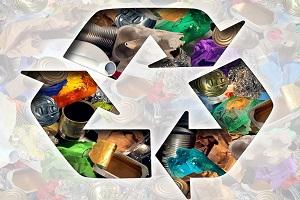Countries across the pan-European region and North America are intensifying efforts to make their resource use more circular: to close the loop between raw materials, products and wastes so that materials remain in use and consumption of finite resources is reduced. But the lack of an internationally-agreed definition of a circular economy remains a major barrier to designing informed strategies. Only with a clear understanding of what circularity means, and a comprehensive measurement framework that allows for comparisons between countries or over time, can progress be robustly monitored and accelerated. The lack of consensus to date on what a circular economy actually is has held back the development of standardized indicators, meaning that existing statistical resources only provide part of the picture.
This is set to change thanks to an international Task Force that will mobilize the expertise of statistical offices from among the more than 65 countries participating in the UNECE Conference of European Statisticians (CES). Over the next two years, the Task Force of seven countries led by Finland – in close collaboration with the UN Statistics Division, OECD, Eurostat and other international organizations – will clarify the scope for measuring the circular economy and will define key concepts, focusing on meeting the information needs of important regional and global policy frameworks such as the EU Green Deal, and on meeting the data challenges in such diverse areas as climate change and plastic waste. The Task Force will develop practical guidance for measurement and will strengthen coordination among international organizations.
Consolidating existing approaches can ensure holistic measurement
The European Environment Agency’s 2019 country level analysis revealed that there are widely differing approaches and degrees of development when it comes to indicators and frameworks for measuring the circular economy. Recent UNECE expert discussions on Measuring Circular Economy and a CES in-depth review revealed the full extent of this diversity of approaches, making clear the pressing need for a common measurement framework.
Many EU countries, for example, have applied the European Commission Monitoring Framework for the Circular Economy and already produce some internationally-comparable indicators, such as the Circular Material Use Rate. OECD work includes monitoring of waste, materials, and resource productivity, for which regular data collection is in place. Other statistics used to measure circularity include the percentage of employment in circular economy-related activities (such as in France), the share of industrial waste recovered (Belarus) or the value-added of the environmental goods and services sector (Belgium). Countries also often focus on selected aspects with high policy relevance (e.g. plastic waste in Canada, or industrial processes in Sweden).
However, given the complexity of the processes involved, which relate to many different sectors and phenomena, holistic measurement approaches are needed, covering all three dimensions of sustainable development: economic, social and environmental. Many countries have made progress in uniting these dimensions in their measurement tools: for example, Canada has been developing a material flow account to track key plastics in the Canadian economy; Belarus is developing specialized accounts for environmental protection expenditure and environmental taxes; and the Netherlands is developing indicators of employment and value-added related to the circular economy.
The Task Force will build on existing tools developed through cooperation at UNECE, including the soon to be endorsed CES framework on waste statistics that considers waste in a broader context of flows of products and materials and policy support to countries under the UNECE Working Group on Environmental Monitoring and Assessment. UNECE helps ensure linkages between measures of economic development and environmental, social and wellbeing statistics – including circular economy – within the System of National Accounts, a global statistical standard that provides an overarching framework for measuring economic activity.
Important aspects of a circular economy and its relationship with climate change policy (such as use of renewable energy or energy efficiency, for example) are also addressed by the CES Recommendations on Climate Change related Statistics (2014) and its Set of Core Climate Change-related Statistics and Indicators (2020). In addition, UNECE/FAO collect data exploring the issue of wood-based value chains in a circular economy in the region.
With much work to be done in the coming years, improving the measurement of the circular economy is one way that UNECE is helping its member States take action in this priority area for the region, which was the focus of the recent 69th session of the UN Economic Commission for Europe and which will form the basis of a high-level discussion among the region’s chief statisticians at this month’s 69th plenary session of the Conference of European Statisticians.


